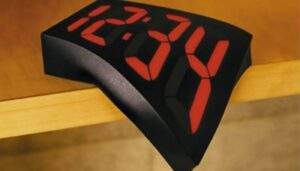Table of Contents
401(k) Retirement Loans & Contributions in Bankruptcy: Explained
Are 401(k) contributions allowed in a bankruptcy? What about retirement loans? We all know it’s wise to save for our future, but can you contribute to retirement plan like 401k or 403b if you’re filing bankruptcy? In the Ninth Circuit, it depends.
The rationale
We all know why it’s smart to put away money for when you retire. But why would anyone complain about saving for retirement? The issue is that voluntary retirement contributions in a bankruptcy reduce what you have available for repaying your debt.
Some courts allow voluntary deductions for 401(k) as prudent saving for retirement, and others think it’s a way to get out of repaying the credit card debts. Let’s see what they say in the 9th Circuit.
Chapter 7 Bankruptcy and Retirement
Chapter 7 and 401k Retirement Contributions
The Ninth Circuit Court of Appeals weighed in on the issue of whether it’s abuse to file Chapter 7 with a retirement loan where the 401k loan repayments left nothing available for the debts. The 9th Circuit ruled that a retirement loan repayment wasn’t a debt, as defined in the Bankruptcy Code.
The Circuit Court started with 401k contributions. Citing the IRS guidelines, the Ninth Circuit found that “‘[c]ontributions to voluntary retirement plans are not a necessary expense.’ IRM § 5.15.1.23.” In re Egebjerg, 574 F. 3d 1045, 1052 (9th Cir 2009).
401(k) Retirement Loans and Chapter 7 bankruptcy
But what about retirement loan repayments? That distinction must be crucial, right? Wrong.
“Because the debtor’s loan repayment obligation is not a “claim” or “debt” under the Bankruptcy Code, the debtor may not include payments on such loans as a deduction for purposes of the means test under § 707(b)(2).” Egebjerg at 1050.
And then a little later: “For all the foregoing reasons, the bankruptcy court erred by allowing Egebjerg to deduct his 401(k) repayment from disposable income for purposes of the means test. If the amount of his loan repayment is included in Egebjerg’s income, then a presumption of abuse arises under § 707(b)(2).” Id. at 1052.
So, in the 9th Circuit, it’s not necessary to make voluntary contributions to a retirement plan. Further, there is no place in the means test to include deductions for a 401(k) loan repayment. Neither repaying a retirement loan, or voluntarily contributing to a retirement plan, is allowed in Chapter 7. That is, it can be done, but there is no place to count it or get credit for either of those transactions, which could make it harder to qualify for Chapter 7.
Therefore, as far as Chapter 7 bankruptcy is concerned in the 9th Circuit, including either a 401k contribution or repaying a retirement loan is not allowed in the Chapter 7 means test, and doing so could lead to them being removed from the calculations and potentially leading to a presumption of abuse.
Chapter 13 bankruptcy and Retirement
Retirement Loans in Chapter 13 bankruptcy
In the same case, the Ninth Circuit pointed out that retirement payments are specifically allowed in Chapter 13 in Section 1322(f), so it’s not an issue here.
Section 1322(f) of the Bankruptcy Code says:
“A plan may not materially alter the terms of a loan described in section 362(b)(19) and any amounts required to repay such loan shall not constitute “disposable income†under section 1325.”
Section 362(b)(19), then, says that filing a bankruptcy does not operate as an automatic stay against:
“… withholding of income from a debtor’s wages and collection of amounts withheld, under the debtor’s agreement authorizing that withholding and collection for the benefit of a pension, profit-sharing, stock bonus, or other plan established under section 401, 403, 408, 408A, 414, 457, or 501(c) of the Internal Revenue Code of 1986, that is sponsored by the employer of the debtor, or an affiliate, successor, or predecessor of such employer—
(A) to the extent that the amounts withheld and collected are used solely for payments relating to a loan from a plan under section 408(b)(1) of the Employee Retirement Income Security Act of 1974 or is subject to section 72(p) of the Internal Revenue Code of 1986; or
(B) a loan from a thrift savings plan permitted under subchapter III of chapter 84 of title 5, that satisfies the requirements of section 8433(g) of such title; but nothing in this paragraph may be construed to provide that any loan made under a governmental plan under section 414(d), or a contract or account under section 403(b), of the Internal Revenue Code of 1986 constitutes a claim or a debt under this title;”
That’s a retirement loan. Long story short, Congress went out of its way to allow repayment of a retirement loan in Chapter 13. The Ninth Circuit seized upon this distinction:
“…in BAPCPA, Congress expressly gave Chapter 13 debtors the ability to deduct 401(k) payments from their disposable income calculation, § 1322(f), but did not include any similar exemption for Chapter 7 debtors.” In re Egebjerg, 574 F. 3d 1045, 1050 (9th Cir, 2009)
Retirement Contributions in Chapter 13
Now, recall that Egebjerg was a Chapter 7. For a discussion that stretched it to 13s, see In re Prigge, 441 BR 667 (Bankr. Ct Mont 2010).Â
In Prigge, we have a Chapter 13 bankruptcy where debtor made voluntary contributions to his 401(k) plan, which the bankruptcy court found “unnecessary,” citing Egebjerg. After reviewing parts of the Chapter 7 statute of 707, the court found that the Chapter 13 plan wasn’t proposed in good faith under Section 1325.
Not long after, the Ninth Circuit BAP ruled against voluntary retirement contributions. Finding Prigge and its line of cases persuasive (including the 6th Circuit’s In re Seafort, 437 B.R. 204 (BAP 6th Cir 2010), the 9th Circuit BAP ruled, “…we hold that § 541(b)(7) does not authorize chapter 13 debtors to exclude voluntary post-petition retirement contributions in any amount for purposes of calculating their disposable income.” In re Parks, 475 BR 703, 709 (BAP 9th Circuit 2012)
However, one factor to consider after both of these cases was a wonderful ruling for debtors in 2013. After Prigge, after Parks, again in the Ninth Circuit, the good faith requirement was clarified in the favor of debtors. In re Welsh, 711 F. 3d 1120 (9th Cir, 2013).Â
Welsh, one of the best Chapter 13 bankruptcy cases ever, and one which every bankruptcy attorney should know, didn’t specifically rule on 401k loan contributions. However, it did find unnecessary payments on luxury secured goods were allowed.
There is a good chance that, in light of Welsh, that Parks could very well be reversed in to allow 401k contributions and other voluntary contributions to retirement plans. We’ll have to see what the future holds.





